Are you a student planning to study in the USA and want F1 Student Visa? If yes, then you are at the right place. Knowing the cost involved is an important factor while studying in the USA.
Table of Contents
In this article, we will discuss the eligibility criteria, application process, interview tips and more for the F1 student visa for studying in the United States. Keep reading this article to know more about it.
What is the F1 student visa?
When you are an international student attending a college or university in the US, you should have an F1 student visa. This visa allows you to study in the US for the duration of your academic program or English Language Program.
To maintain your status, you must be enrolled in a full-time course. You are allowed to stay in the US for up to 60 days after completing your program unless you have been approved for the OPT Program. This program lets you stay and work for some time.
You should complete your studies by the expiration date on your I-20 form. You will receive it from the college or university you are attending. This form shows that you are eligible for Non-immigrant Student Status.
What are the benefits of an F1 student visa?
Here are some of the key benefits of an F1 student visa:
- You have the opportunity to pursue various degrees in the United States from many top-notch institutions.
- Your family can join you on an F1 visa as F2 dependents. They will receive their own I-20 forms.
- If your F2 children are in K-12 grades, they can attend school full-time. If they are older, they can go part-time or switch to F1/J1/M1 status for full-time study.
- You have the option to work during your studies and after graduation.
- There is no limit to the number of students who can enter the US under the F1 visa. So you won’t have to worry about competing in a lottery system.
- You are allowed to travel while holding an F1 visa, as long as you have approval from your DSO and your I-20 is still valid.
Is the F1 student visa right for me?
Studying in the United States is a big dream for many students. It usually involves getting an F1 student visa. Whether you are pursuing a degree or attending a vocational school, you will need the right visa.
The F1 visa is for academic studies, not vocational training. To get this visa, your school must be approved by the Department of Homeland Security. This ensures that your school is accredited to accept international students.
Once you have an F1 visa, you can work in the US. But there are limitations on where and what type of work you can do. Also, if you have a spouse and kids, they can come with you, but they won’t be allowed to work. But, your children can attend school while on F2 visas. This will be linked to your visa status.
F1 Visa Qualifications
When you go for an F1 visa interview, you should meet the following visa qualifications:
- You must have a home country where you intend to return after your studies.
- You can only study at the institution that sponsors your visa.
- To prove your financial support, you will need to show that you have enough money to cover your expenses while studying in the US. This can include assets like a house or a bank account. If you are worried about the financial aspect.
- You must have strong ties to your home country. This could be a job offer, family connections, or other assets.
How To Apply for an F1 Student Visa?
Admission Requirements
- Each university has its own rules for admissions. They will let you know what they need to make sure you are qualified to study there.
- You will have to prove you have enough money to support yourself while you are studying, without needing to work.
- You might also need to show you have health insurance to cover any medical costs.
- Once the university sees that your application is complete and you meet their academic requirements, they will give you an I-20 form. This form is important for applying for your student visa.
Where to Apply for Your F1 Student Visa?
When applying for a student visa, you should usually go to the U.S. Embassy or Consulate in your home country, where you live. It is where you will likely have an easier time getting approved. You can apply at any U.S. consular office abroad. But it might be harder to get a visa if you are not in your home country.
How To Get Your F1 Student Visa?
Getting an F1 student visa can be complicated. If you feel like you need some help, you might want to consider working with an immigration lawyer. One such option is F1 Visa Advisors, Inc. It is a legal firm founded by a skilled immigration lawyer in the US. They offer a special program that gives students personalized assistance with their visa applications. This can improve your chances of getting approved for an F1 visa.
What Should You Submit with your F1 visa application?
When you are applying for your student visa, the process might differ. This depends on your country and embassy. Here is what you will need:
- There is an application fee that you have to pay. It is usually non-refundable. So, if your visa does not get approved, you won’t get your money back.
- You will also need to complete and submit Form DS-160. This is the online application for a non-immigrant visa.
- If you are a male aged 16-45, you will have to fill out Form DS-157 as well.
- You should have a valid passport that is good for travel to the United States. It should still be valid for at least six months beyond your planned stay there.
- You will need to provide photos that meet specific requirements:
- They should be in color
- Your head must take up a certain percentage of the image’s total height
- They should be taken within the last six months, against a plain white or off-white background
- It must show your full face with a neutral expression
F1 Visa Interview
When you go for your interview at the U.S. Embassy or consulate, make sure you have the following things:
- You should have an unexpired passport that will be valid for at least six months beyond your planned entry into the United States.
- Each person who needs a visa should submit their application, even if they are listed in your passport.
- You should not forget to bring the confirmation page for Form DS-160 and the receipt for the application fee you paid.
- You will also need a photo that fulfills the U.S. State Department’s requirements.
- You should have your Form I-20 from your academic institution.
- It is important to bring evidence of your educational background, like transcripts, diplomas, or certificates, as well as any standardized test scores your school requires.
- You will also need to show proof of your ties to your home country.
- You must prove that you have enough money to support yourself and pay for your studies in the U.S.
- During your interview, the officer will ask you questions to decide if you will get your F1 visa. Your answers should be accurate, as you will put you under oath.
- After your interview, the officer might need more time to process your application, and they will let you know if that is the case.
- Once your interview is done, you will find out if you got the visa. If you are successful, you will be issued a visa to study in the United States.
What Should You Do If Your F1 Visa Is Denied?
If your F1 visa application gets denied, it is because of U.S. immigration law. The paperwork you receive will explain the reason and the law section you were denied. Some denials happen because you did not give all the needed info or documents. But sometimes, you might be ineligible for other reasons.
If you do not meet the F1 Visa Qualifications, you can expect a denial. For example, if you cannot show strong ties to your home country that would make you go back after your U.S. stay, you will be denied under INA section 214(b).
Other common reasons for denial include Fraud or Misrepresentation, Unlawful Presence in the United States, and Health, Criminal, or Security-related issues. To learn more about visa denials and to see if you can get a waiver or reapply, check out the US Department of State website.
How Should You Maintain a Valid F1 Status Post-arrival?
Once your F1 visa is approved, you can enter the US as a student. But it is important to keep up with your responsibilities.
If you do not maintain your F1 visa status, you would not be allowed back in if you leave, and you won’t qualify for practical training or on-campus jobs. Here are some tips to stay on track during your studies:
- When you arrive, make sure it is no more than 30 days before classes start. Check-in with your advisor right away.
- During your program, stay enrolled full-time, attend classes, and aim for good grades. If you are struggling, talk to your advisor. If you cannot finish on time, your advisor can help with an extension.
- Keep your passport valid for at least 6 months ahead. If you need an extension, your home country’s consulate can assist. Carry a copy of your passport and I-94 card for ID.
- For work, stick to on-campus options unless you qualify for special training. Do not risk working without permission, or you could lose your visa.
- After finishing your program, you have 60 days to leave the US under your F1 student visa. If you want to stay, talk to your advisor about your options like enrolling in a new program or changing your visa status.
How To Extend Your F1 Student Visa?
If you are falling behind in your studies, you can ask your DSO for more time by requesting an extension. They might approve it for reasons like health issues or changes in your academic plans, such as switching majors or dealing with research problems.
But remember, if you are on academic suspension, you won’t be able to get an extension. If you do not finish your program on time and do not ask for an extension when you need it, you will be seen as out of status.
Frequently Asked Questions
1. Can I bring my family with me on an F1 student visa?
You can bring your spouse and kids with you to the US. They can apply for F2 visas. It will let them live with you while you study. They do not need to pay the SEVIS fee. But your school must give them their Form I-20. You will need to show copies of your F1 visa and prove your relationship.
2. Can I work while I am on an F1 student visa?
During your first year of studies, you cannot work off-campus as an F1 student. But, you can take on-campus jobs if they meet certain conditions. After your first year, you have three options for off-campus work: Curricular Practical Training (CPT), Optional Practical Training (OPT) before or after finishing your program, and STEM OPT for specific fields like Science, Technology, Engineering, and Mathematics.
3. Do I need to pay taxes if I work in the USA while on an F1 student visa?
It depends on your specific tax situation. You might have to fill out a U.S. tax return. To get more information, it is a good idea to talk to a qualified tax professional.
4. Can I change my schools during my F1 visa period?
You can change between SEVP-certified schools as an F1 student. It is generally possible. But, it does require some paperwork and coordination on your part.
5. Can I stay in the USA after I finish my studies?
After completing your studies in the United States as an F1 visa holder, there are various programs and visas you can explore. These options depend on your specific situation, field of study, and work experience. So please make sure to research them thoroughly.
Conclusion
The F1 student visa is a non-immigrant visa that allows students to complete their studies in the US.
To get started, you need to apply and get accepted into a school approved by the Student and Exchange Visitor Program (SEVP). After acceptance, you will need to register in the Student and Exchange Visitor Information System (SEVIS) to receive your I-20 form. This is necessary for admission to the US. You should not forget to pay the SEVIS fee (Form I-901) as well.
The F1 student visa is a valuable option for you if you wish to pursue your undergraduate or graduate degrees in the United States. So in this article, we covered F1 visa eligibility, its benefits, requirements, application process, extension and more. You have all the resources and information now to apply for your F1 student visa.






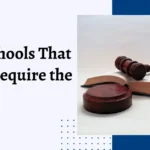

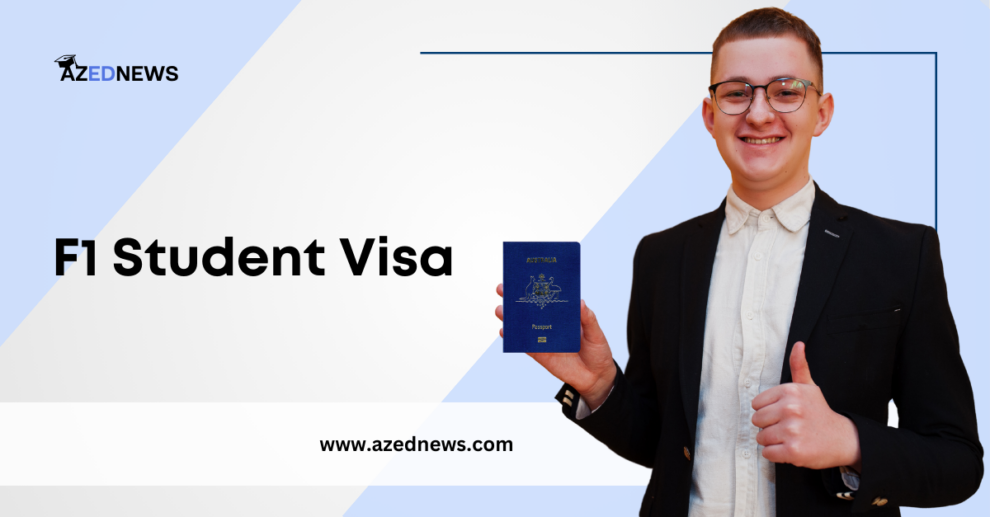
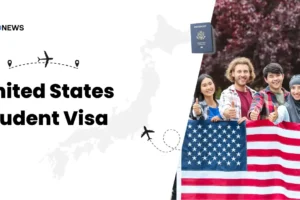
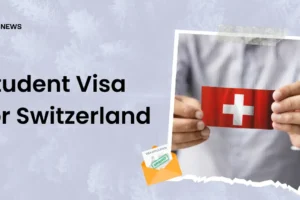
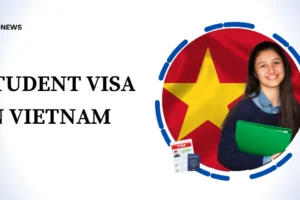
Add Comment